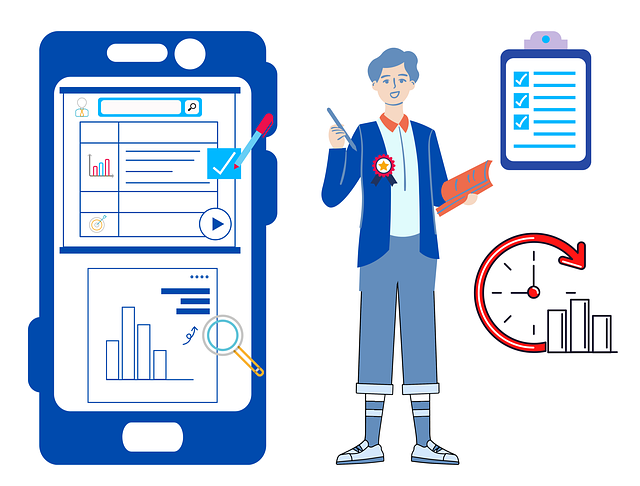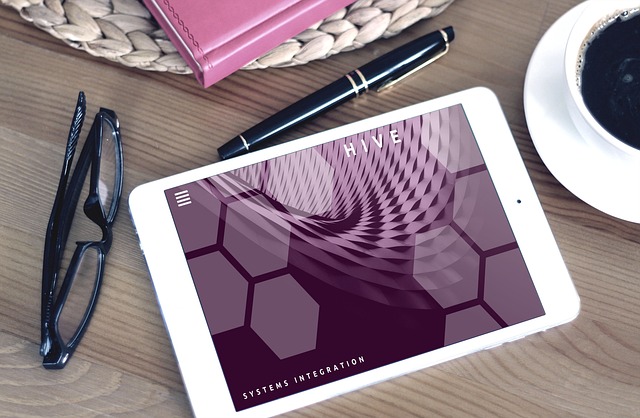AI accessibility audit tools are reshaping commercial real estate (CRE) investment risk modeling by providing data-driven insights previously unattainable. These advanced solutions analyze vast datasets on building characteristics, market trends, and tenant info to identify hidden patterns and correlations. Leveraging machine learning algorithms, they process complex data including historical performance metrics, location factors, and regulatory changes, enhancing risk quantification and outcome prediction accuracy. By ensuring investment strategies are based on solid, data-backed evidence, these tools enable CRE professionals to create more inclusive and profitable portfolio assets while navigating market trends effectively.
“AI is transforming the landscape of commercial real estate investment, particularly in risk modeling. This article explores innovative applications of artificial intelligence, focusing on data-driven insights and predictive analytics. We delve into how AI enhances risk assessment through advanced algorithms, while also addressing accessibility concerns with dedicated audit tools. By leveraging these technologies, investors can make informed decisions, predicting market trends and ensuring fair, inclusive spaces for future tenants.”
- Unlocking Data-Driven Insights: AI in Commercial Real Estate Risk Assessment
- The Role of Accessibility Audit Tools: Ensuring Fair and Inclusive Spaces
- Modeling Future Scenarios: Predicting Market Trends with AI for Informed Investments
Unlocking Data-Driven Insights: AI in Commercial Real Estate Risk Assessment

In the realm of commercial real estate (CRE), Artificial Intelligence (AI) is revolutionizing investment risk modeling, enabling a data-driven approach that was previously unimaginable. AI accessibility audit tools have emerged as powerful assets, meticulously analyzing vast datasets related to building characteristics, market trends, and tenant information. These tools can identify patterns and correlations that might not be apparent through traditional methods, thus providing deeper insights into potential risks and opportunities.
By leveraging machine learning algorithms, these AI systems can process and interpret complex data sets, including historical performance metrics, location-based factors, and regulatory changes. This capability allows investors to make more informed decisions by quantifying risk factors and predicting outcomes with greater accuracy. With AI at their disposal, CRE professionals can unlock new levels of efficiency, ensuring that investment strategies are not just based on intuition but on solid, data-backed evidence.
The Role of Accessibility Audit Tools: Ensuring Fair and Inclusive Spaces

AI accessibility audit tools are transforming the way we evaluate and ensure fair, inclusive, and compliant spaces within commercial real estate investments. These innovative solutions leverage advanced algorithms and machine learning to systematically scan and analyze building layouts, features, and functionalities from a accessibility perspective. By identifying potential barriers like narrow doorways, lacking ramps or elevators, or insufficient signage, these tools empower investors with data-driven insights into the inclusivity of their portfolio assets.
This technology goes beyond basic compliance with laws like the Americans with Disabilities Act (ADA) to predict and mitigate risks associated with diverse user needs, including those from the elderly, people with disabilities, and other underrepresented populations. By integrating AI accessibility audit tools into investment strategies, real estate professionals can proactively create more welcoming, usable, and valuable commercial spaces that cater to a broader range of tenants and users.
Modeling Future Scenarios: Predicting Market Trends with AI for Informed Investments

AI has transformed commercial real estate investment risk modeling by enabling developers and investors to predict future market trends with unprecedented accuracy. Through advanced algorithms, AI accessibility audit tools for commercial buildings analyze vast datasets including economic indicators, demographic shifts, and property transaction histories. These insights help in identifying emerging patterns, understanding tenant preferences, and forecasting potential risks or opportunities.
By modeling various scenarios, such as interest rate fluctuations, population growth, or new infrastructure developments, investors can make more informed decisions. AI-driven models provide a dynamic view of the market, allowing for proactive risk management strategies. This technology empowers professionals to adapt quickly to changing circumstances, ensuring they capitalize on profitable opportunities while mitigating potential losses.
AI is transforming the landscape of commercial real estate investment risk modeling. By leveraging data-driven insights, AI algorithms can predict market trends and unlock hidden opportunities. Additionally, AI accessibility audit tools for commercial buildings ensure fair and inclusive spaces, enhancing property values. Incorporating these technologies enables investors to make informed decisions, navigating future scenarios with confidence and maximizing returns in today’s dynamic market.
